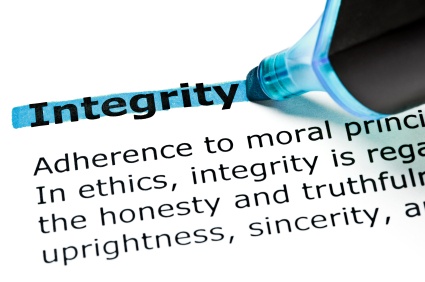"When I do good, I feel good. When I do bad, I feel bad. That’s my religion.” —Abraham Lincoln
Integrity is what you do when no one is watching; it’s doing the right thing all the time, even when it may work to your disadvantage. Integrity is keeping your word. Integrity is that internal compass and rudder that directs you to where you know you should go when everything around you is pulling you in a different direction. Some people think reputation is the same thing as integrity, but they are different. Your reputation is the public perception of your integrity. Because it’s other people’s opinions of you, it may or may not be accurate. Others determine your reputation, but only you determine your integrity.
With our hyper-connected world the amount of difference between your integrity and reputation becomes smaller and smaller. In the digital decades ahead, your integrity and reputation will be one and the same. Why is this the case? Let’s take a quick look at Dungy’s words “Integrity is what you do when no one is watching.” A key premise of my new book Digital Leader is that someone is in fact watching you all the time. These are the realities of our fully transparent world. People start to think twice about committing adultery when they see the ramifications with public figures like Bill Clinton, Tiger Woods, Andrew Weiner, or Eliot Spitzer. Phones with high definition video cameras that port to social media sites instantly are becoming more prevalent, not less.
As the lines between integrity and reputation blur this is a great thing for the world, meaning that your reputation becomes more accurate. Think of reputation as your digital shadows (what others are saying and posting about you). The best way to influence these shadows is through your integrity, which is reflected in your digital footprint. The more you can simplify what you stand for in life, the easier it is not only on you, but on others that are contributing to your online reputation by developing your digital shadow. For example someone posting photos of their kids at the Church bake sale that later accidentally checked in via a geo-location tool during a KKK rally is sending mixed signals that will be discovered and revealed.






